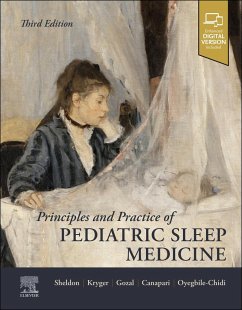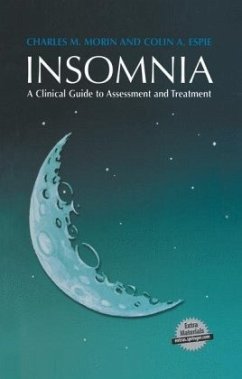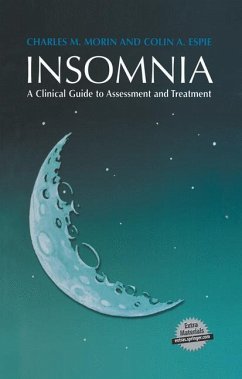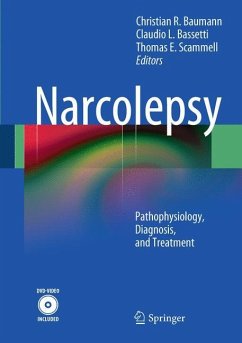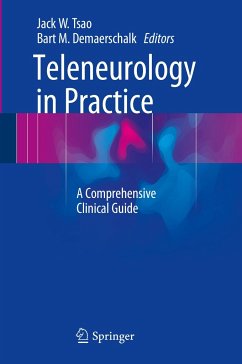
Cognitive Behavioral Treatment of Insomnia
A Session-by-Session Guide
Mitwirkender: Peerlis, M. L.; Smith, M. T.; Jungquist, C.

PAYBACK Punkte
65 °P sammeln!
Sleep disorders and insomnia have staggering societal and personal costs, with lack of sleep accounting for up to 50% of industrial and traffic accidents every year. This book guides the clinician in how to best establish a sleep clinic to study and solve sleep disturbances of his or her patients. Residents in the rapidly growing number of sleep medicine programs will want to keep this practical, hands-on manual at their sides as they learn the tools of the trade.
Cognitive behavior therapy which has been adapted to treat so many problems, has also brought data-driven and data-yielding treatment to insomnia. Focusing on this evidence-based modality, Cognitive Behavioral Treatment of Insomnia is a much-needed treatment manual that provides clinicians with the why's and how's of this approach in concise and practical terms.
This book, which is written as a reader-friendly guide, is intended for clinical trainees, non-insomnia sleep specialists, and for expert CBT clinicians from outside the sleep medicine field who wish to begin the process of learning to provide empirically validated CBT-I.
The Book is organized into seven parts: definition of insomnia; review of the conceptual; framework for treatment; overview of the components of therapy; session-by-session guide; dialogues; assessment and eligibility for CBT-I; and sample documentation. The organizing principles for the guide can best be expressed as two seemingly simple questions:
"Who is appropriate for CBT-I?"
"What does one need to know to set up a Behavioral Sleep Medicine service?"
The guide provides all that one needs to confidently answer these questions.
This book, which is written as a reader-friendly guide, is intended for clinical trainees, non-insomnia sleep specialists, and for expert CBT clinicians from outside the sleep medicine field who wish to begin the process of learning to provide empirically validated CBT-I.
The Book is organized into seven parts: definition of insomnia; review of the conceptual; framework for treatment; overview of the components of therapy; session-by-session guide; dialogues; assessment and eligibility for CBT-I; and sample documentation. The organizing principles for the guide can best be expressed as two seemingly simple questions:
"Who is appropriate for CBT-I?"
"What does one need to know to set up a Behavioral Sleep Medicine service?"
The guide provides all that one needs to confidently answer these questions.





